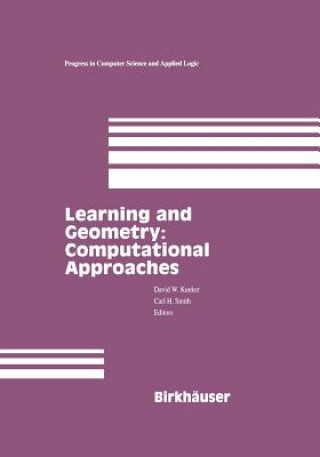
Livrare
Consilier de cumpărături





Nu se pretează? Nu contează! La noi puteți returna bunurile în 30 de zile
 Voucher cadou
orice valoare
Voucher cadou
orice valoare
Cu un voucher cadou nu veți da greș. În schimbul voucherului, destinatarul își poate alege orice din oferta noastră.
Learning and Geometry: Computational Approaches
 engleză
engleză
 318 b
318 b
30 de zile pentru retur bunuri
Ar putea de asemenea, să te intereseze


The field of computational learning theory arose out of the desire to for mally understand the process of learning. As potential applications to artificial intelligence became apparent, the new field grew rapidly. The learning of geo metric objects became a natural area of study. The possibility of using learning techniques to compensate for unsolvability provided an attraction for individ uals with an immediate need to solve such difficult problems. Researchers at the Center for Night Vision were interested in solving the problem of interpreting data produced by a variety of sensors. Current vision techniques, which have a strong geometric component, can be used to extract features. However, these techniques fall short of useful recognition of the sensed objects. One potential solution is to incorporate learning techniques into the geometric manipulation of sensor data. As a first step toward realizing such a solution, the Systems Research Center at the University of Maryland, in conjunction with the Center for Night Vision, hosted a Workshop on Learning and Geometry in January of 1991. Scholars in both fields came together to learn about each others' field and to look for common ground, with the ultimate goal of providing a new model of learning from geometrical examples that would be useful in computer vision. The papers in the volume are a partial record of that meeting.
Informații despre carte
 engleză
engleză




 Cum să cumpăr
Cum să cumpăr





























